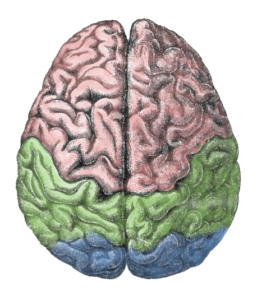 When ATD asked me to write the learning science book, I’d already had the intention of writing a Learning Experience Design (LXD) book. I’d even begun, and the first section on learning was underway, so essentially I was partly done! I’d also realized that it was going to be monumental undertaking. This is because LXD, to me, encompasses three things, all based on cognitive science. To properly address it, I would have to be talking a master’s course, not just a book!. So here I’d like to make the case why I think that there’s a cognitive basis of LXD.
When ATD asked me to write the learning science book, I’d already had the intention of writing a Learning Experience Design (LXD) book. I’d even begun, and the first section on learning was underway, so essentially I was partly done! I’d also realized that it was going to be monumental undertaking. This is because LXD, to me, encompasses three things, all based on cognitive science. To properly address it, I would have to be talking a master’s course, not just a book!. So here I’d like to make the case why I think that there’s a cognitive basis of LXD.
First, look at the three elements of LXD: learning, experience, and design. For experience, you can think: engagement and/or emotion. That is, ensuring that there’re explicit feelings associated, not just occurrences. Each one of those three things, then, has a cognitive underpinning.
As I’ve discussed previously, learning science was an outgrowth of cognitive science. The inter-disciplinary approach to cognition that inspired the formation of cognitive science subsequently led to learning science. Design, too, was a subject of study. I happened to be a grad student at the time that user-centered approaches, subsequently UX, were being explored. This, too, is cognitive; first because design approaches have to reflect aligning with how users brains work. Then, also, because design processes have to accommodate how designers brains work, and don’t!
Then we come to the experience side. It turns out that understanding ‘experience’ is a cognitive exercise as well. Why are we driven by curiosity? How come we remember emotionally-charged events better? What creates positive affect? It’s an interdisciplinary approach as well, integrating research on emotion and events and more. It’s the topic of my just-released book (which includes design as well, to serve as the complement to my learning science book).
I continue to explore all three, from a professional responsibility and personal interest. I admit I nerd out about these things, and am always eager to find out more and discuss it. And I’ve do have a bias. My Ph.D. is in Cog Psych, so I do look at world with that filter. But I also see that the perspective provides some useful leverage. My current ideal is to make experiences that are transformative, in that they change people in ways that they want, or need, to change. That’s the goal.
I will continue to maintain that knowing the underpinning architecture, and then the manifestations in the three areas, are important. I believe that knowing the cognitive basis of LXD is an advantage in being able to execute against the requirements in optimal ways. So, am I missing anything?
Leave a Reply